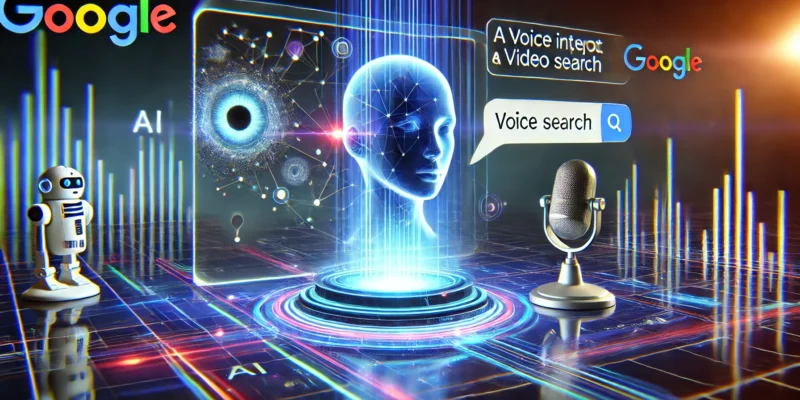
Key Points
- Google enhances AI-powered search with voice-based queries on images and videos.
- New features improve interaction through Lens and conversational responses.
- AI-driven search aims to fix misinformation while increasing publisher traffic.
- Google targets younger audiences with simpler, more intuitive search experiences.
Voice-Activated AI-Powered Search: A Game-Changer for Visual Queries
Google is advancing its AI-powered search by allowing users to ask voice-based questions about images and videos.
By building on its Lens feature, Google has made it easier for users to engage with search in a conversational way.
You can now point your camera at an object or record a video, speak your query, and Google’s AI will respond as if you’re chatting with a friend.
For example, capturing a video of a dog and asking, “What breed is this?” will generate an instant AI-generated answer.
This conversational approach offers users a more personalized experience, perfect for younger audiences who value quick and visual interaction. Google aims to roll out these features widely, with current testing available through Google Labs.
Google’s Search Engine’s Latest #AI Injection Will Answer Voiced Questions About Video and Photos & More Headlines https://t.co/6B63U6n5mv pic.twitter.com/And4fdZ9kW
— Library Journal (@LibraryJournal) October 3, 2024
AI Fixes Mistakes and Improves Search Accuracy
As Google expands its AI-powered search, it has worked hard to address past issues with misinformation. Initially, AI Overviews—automated summaries at the top of search results—produced errors like suggesting users eat rocks or glue pizza, which undermined user trust.
Google has since fine-tuned its AI to reduce such mistakes, making responses more reliable and accurate.
To further improve, Google’s updated AI will also decide how to organize search results.
This means that when searching for recipes or other queries on mobile, users will see content presented in clusters, including photos, videos, and relevant articles, creating a more engaging and visually rich experience.
Google remains confident that its AI advancements will help prevent past missteps while delivering better results.
Boosting Traffic for Publishers While Expanding AI Use
When Google first launched its AI-powered search earlier in 2024, many publishers were concerned about losing traffic.
AI-generated summaries meant fewer users clicked through to traditional news outlets like The New York Times. To address this, Google is now incorporating more links to external websites within AI Overviews.
This change is helping drive more traffic back to content providers, particularly niche websites like Bloomberg and The National Institutes of Health, which have benefited from the AI-driven search model.
Google’s focus on delivering more accurate search results with ample website references showcases its commitment to keeping publishers in the loop.
These AI improvements signal a new era of search, where information is not only easier to access but also highly interactive and visually appealing.
















